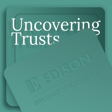
4. Bull, Bear & Beyond – Medigene: executive interview
Medigene (FSE: MDG1) is a publicly listed, Germany-based, immuno-oncology platform company focused on the development of T cell receptor (TCR)-guided therapies with the aim of effectively eliminating cancer.
In this video we speak to Dr Kirsty Crame, MD, Head of Clinical Strategy and Development at Medigene, where we cover how Medigene is differentiated within the field of precision immunotherapy, the company’s modular End-to-End Platform approach and its ongoing partnerships with BioNTech, Regeneron and, most recently, WuXi Biologics. Dr Kirsty Crame, MD, also discusses the key milestones and catalysts for investors to watch out for across the next 12–18 months.
**************************************************************************************
About ‘Bull, Bear & Beyond’
'Bull, Bear & Beyond': features candid conversations with senior executives and from our own team of experts from across industries, exploring strategy, innovation, and the opportunities shaping their markets and 60-second pieces are a compressed summary of content designed to convey our message in a single, easily shareable hit.
About Edison:
Edison is a content-led IR business. We believe quality investment content should inform all investors, not just brokers. Our mission: engage and build bigger, better-informed investor audiences for our clients.
Edison covers 50+ investment trusts, read about them here: https://www.edisongroup.com/equities/investment-companies/
Original interview published on 30/09/2024 and reposted as a podcast

